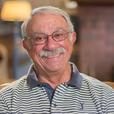How do you talk to kids about their parent's cancer? My diagnosis took place when I was older in life, and my children were also older — as in married with their own children. The test results were announced with my children present.
We underestimate the resilience of children. When informing children of a cancer situation involving a parent, there are certain factors to take into consideration:
- The age of the children
- The maturity level of the children
- The depth of the relationship between parent and children. Is the parent present or estranged?
Children should be told point blank about the parent's condition. "Point blank" means you take into consideration the above factors. The child should know that mom or dad is ill. That it is a serious illness.
A frequent comeback from the child is, "Is mom or dad going to die?" My feeling is that the question should not receive a definitive yes or no, because you don't know. A child should be told mom or dad has wonderful doctors. They will work very hard to make mom or dad well. Mom or dad will be a very good patient because mom or dad wants to get well.
Children should also be made aware of some possible effects of cancer treatment. Mom or dad might have a new "hairdo," like no hair. Or mom or dad might need a bit more rest.
Children internalize. Therefore, it should be made clear that mom's or dad's illness had nothing to do with them. Children sometimes blame themselves, similar to a divorce situation: "If I would have done this," or "If I would have done that."
Children should also be reassured that they are loved. This is important, because they might receive a little less attention during this period of time. There is no "one-size-fits- all" for this situation. Common sense, effective directness and love should be your guide.
Be well.
— Joe
Share Your Thoughts
How old were your kids when you were diagnosed with cancer? How did you tell them? How did they react? Share your comments below.




Joe, this blog is very timely. I was asked to speak with someone through work because this person had just been diagnosed with cancer. One of the things that came up when we were talking was how to tell the 11 year child in that family. Based on that conversation, I may or may not be present when the child is told (the initial thought of the patient was that I should be there but they might have changed their mind as I do not know any of the people involved very well). Your points are perfect for me, just in case!